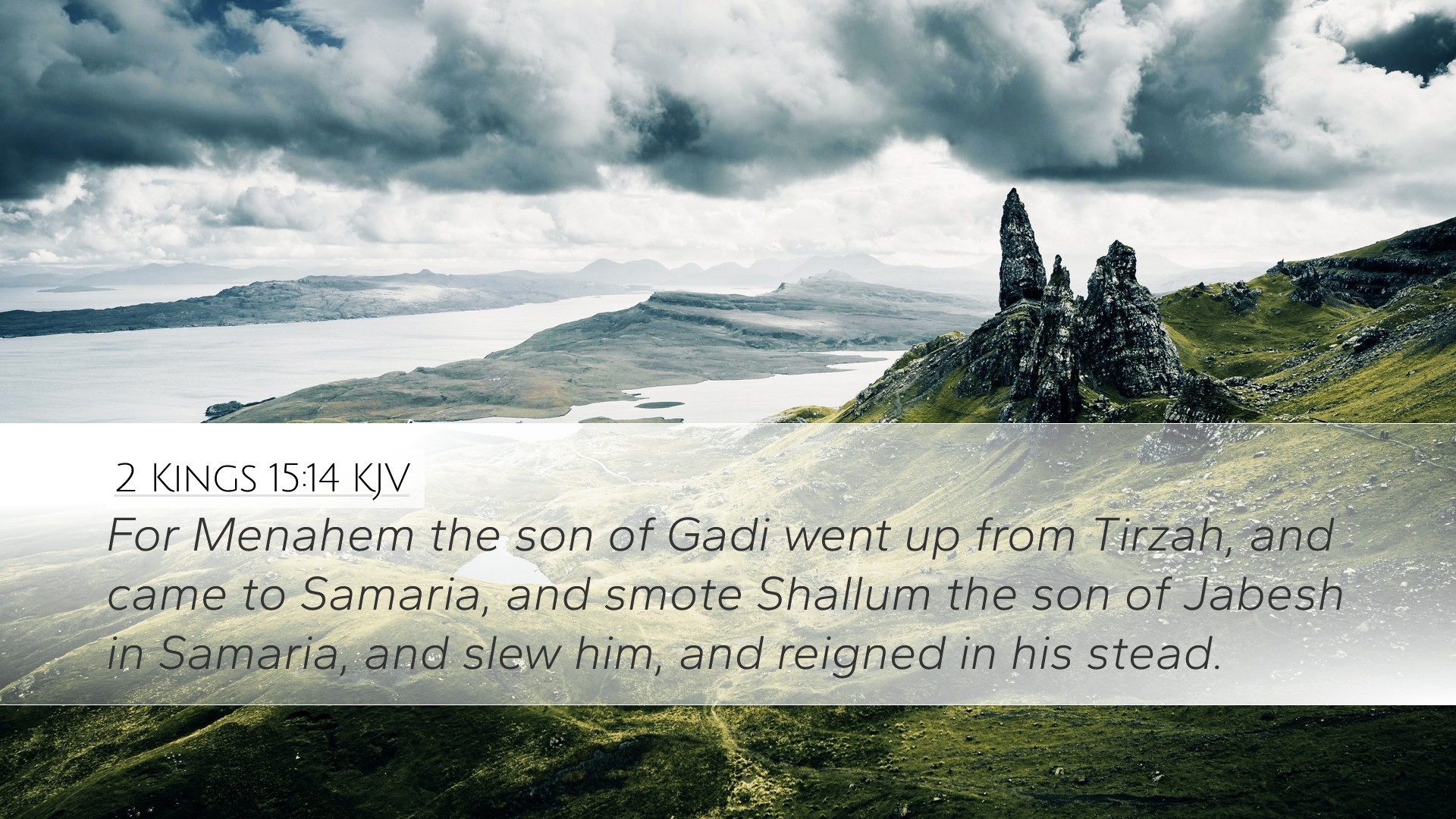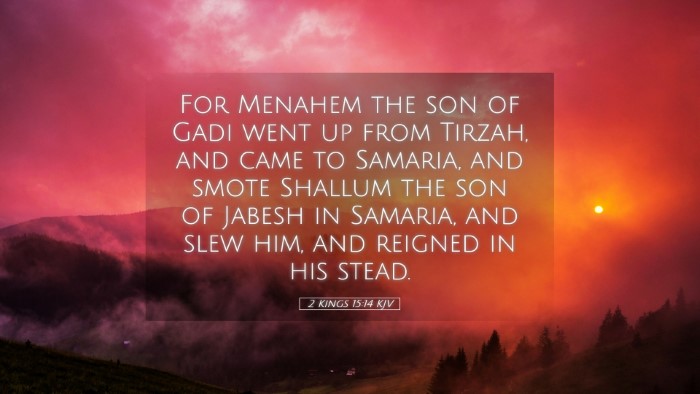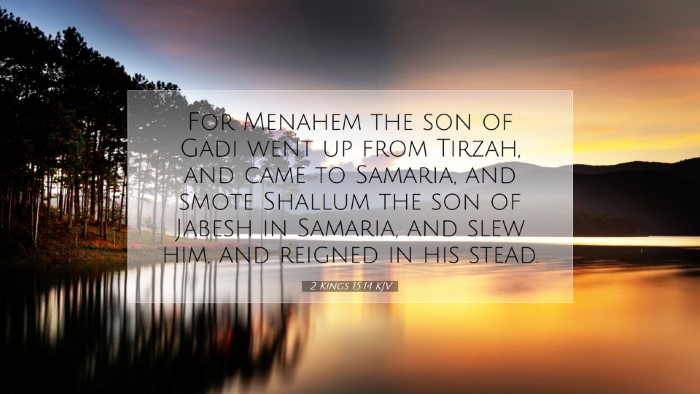2 Kings 15:14 Commentary
Verse: “For the king of Israel went up to his chariot, and saw his life was in danger, and did not return.”
Contextual Background
This verse is situated in a period of considerable turmoil and political strife within the kingdom of Israel. It reflects the narrative surrounding the reign of King Jeroboam II, who ruled during a time of relative prosperity yet faced significant challenges, including military threats and internal dissent. The events encapsulated in this chapter of 2 Kings illustrate the cycle of sin, judgment, and divine mercy that pervades the historical books of the Old Testament.
Insights from Public Domain Commentaries
Matthew Henry’s Commentary
Matthew Henry emphasizes the significance of the king’s actions in this verse, pointing to how fear can influence leadership. He notes that “the king of Israel going up” denotes a moment of urgency and peril, illustrating the fragility of power in the face of Divine judgment. Henry stresses that this situation serves as a stark reminder of the transitory nature of human authority and the need for humility before God.
“When a king loses heart, it demonstrates the serious nature of his situation; his fear reveals his lack of faith and trust in God.” Henry reiterates that this episode highlights the eternal truth that worldly power and might are futile unless supported by righteousness and justice.
Albert Barnes’ Notes on the Bible
Albert Barnes provides a detailed historical exposition of the verse. He remarks on the critical implications of the king’s inability to return to a place of safety, symbolizing both a literal retreat and a figurative one from righteousness. Barnes states, “This reflects the moral decline of Israel, where the leaders were often embroiled in sin rather than seeking after God.”
“The inability to find security and strength is indicative of a nation that strays from divine principles.” Barnes draws parallels between the historical context and the spiritual disarray present in contemporary society, urging the readers to reflect on the consequences of abandoning God’s paths.
Adam Clarke’s Commentary
Adam Clarke offers a theological reflection in his analysis of the verse. He highlights the consequential nature of the king’s actions, suggesting that the episode serves as a judgment from God against the nation’s collective disobedience. Clarke argues that the king's retreat epitomizes the inevitable outcome of neglecting God's commandments.
“God’s hand is visible in the affairs of men, and when rulers turn away from righteousness, they become vessels of divine retribution.” Clarke draws attention to 2 Kings as a record not just of history, but as a narrative thread weaving deeper spiritual truths regarding God’s sovereignty over nations.
Theological Reflections
This verse underscores several theological principles that continue to resonate today:
- The Sovereignty of God: The events unfolding in the life of the king showcase that human leadership, while significant, is ultimately under God's control.
- The Nature of True Security: As illustrated by the king's predicament, security is found not in military might or political maneuvering, but in alignment with God’s will.
- The Consequences of Disobedience: The narrative serves as a caution against the easy temptations of power that can lead to a nation’s downfall when leaders forsake their divine calling in pursuit of human desires.
Application for Pastors and Theologians
This verse, along with the broader narrative in which it occurs, offers a myriad of applications for modern-day pastors and theologians:
- Leadership Reflection: Pastors are called to examine their leadership styles in light of faith and integrity rather than worldly wisdom or fear.
- Social Commentary: Engaging with contemporary issues through the lens of Biblical truth allows for meaningful dialogue around the moral responsibilities of leaders.
- Spiritual Teachings: Educating congregations about reliance on God in times of political or economic strife can foster a community grounded in faith rather than anxiety.
Conclusion
In conclusion, 2 Kings 15:14 serves as a powerful reminder of the divine oversight in human affairs. Through the insights of Matthew Henry, Albert Barnes, and Adam Clarke, readers are presented with a rich tapestry of interpretations that challenge them to view their lives and leadership through the lens of divine wisdom and accountability. As we reflect on this passage, may we seek to lead lives marked by faithfulness to God’s calling, realizing that true power comes from Him alone.


